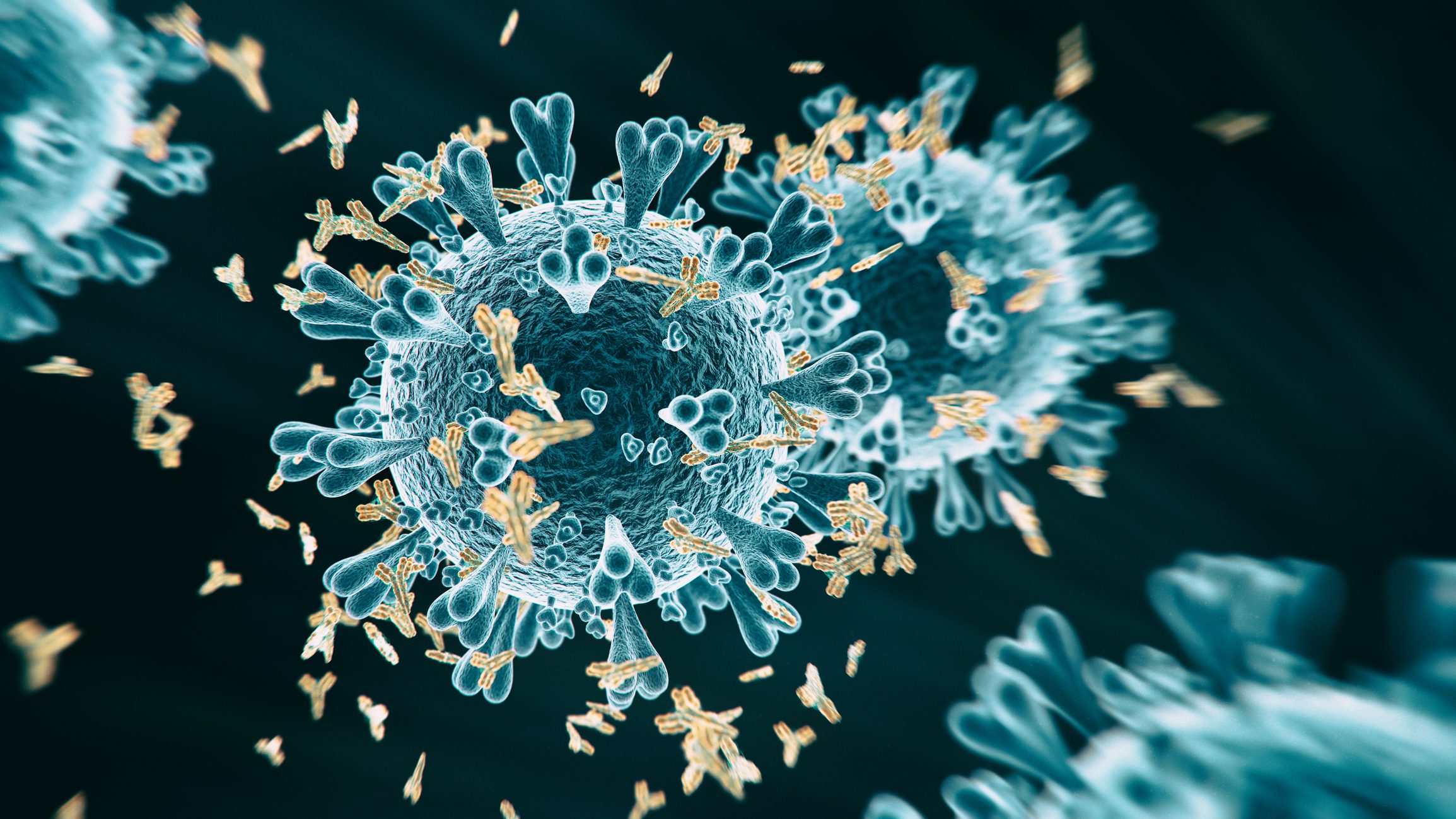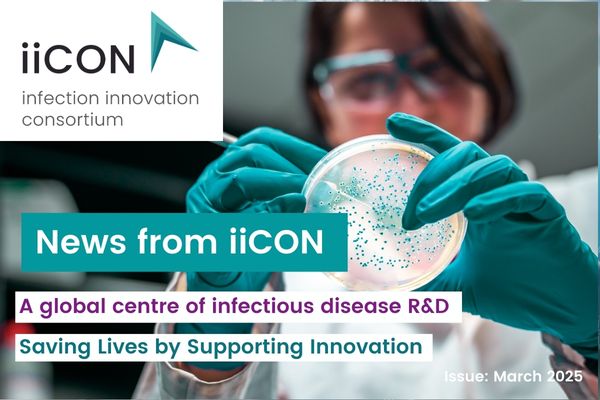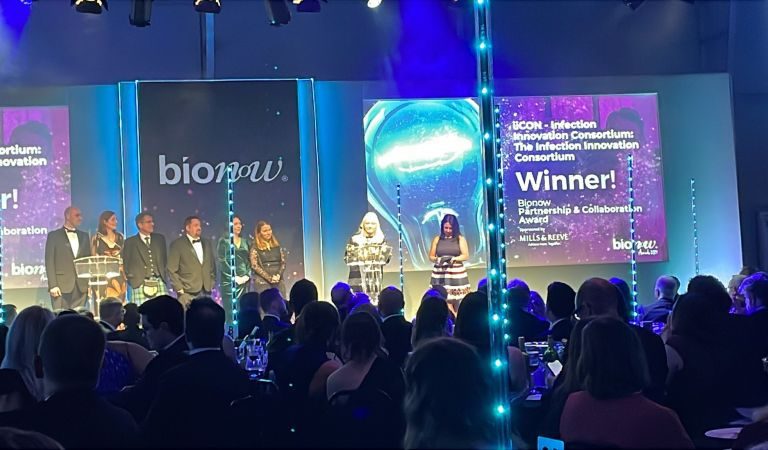- Join the Innovation Journey
- Our Platforms
The Power of Collaboration: How Interdisciplinary Teams Can Tackle Infectious Diseases and Help Save Lives

When it comes to tackling infectious diseases, collaboration and innovation are key. As the world continues to face new and emerging infectious threats, it is imperative that we come together to find effective solutions that can save lives. Two organisations that are striving to make a significant impact in the field of infectious disease research are LifeArc and iiCON.
Who are LifeArc?
LifeArc is a self-funded medical research organisation and charity, with the mission of impacting the lives of people, by bridging the gap between the lab and clinic. LifeArc helps take promising scientific ideas to the next phase of development through investment, partnerships and expertise, for health conditions that need it most, including antimicrobial resistance, emerging viral threats and neglected tropical diseases.
Their expertise and commitment to driving change in areas of unmet medical need, make them an ideal partner for researchers in the field of infectious diseases.
LifeArc has in house capabilities, including extensive expertise in antibody discovery and humanisation. Their state-of-the-art facilities and cutting-edge technologies accelerate the process of antibody development to deliver high-quality biological therapeutics. Their track record speaks for itself – they have humanised more than 94 antibodies over the last 30 years, with a success rate of 98%. This has resulted in 5 therapeutic antibodies on the market, making a difference to the lives of people with a range of conditions.
In addition to antibody capabilities, LifeArc also has expertise in all stages of diagnostic development including assay design, diagnostic development, design verification, and clinical validation.
Who are iiCON?
iiCON, the infectious innovation consortium – led by the Liverpool School of Tropical Medicine (LSTM) – is a partnership involving academia and industry, set up to accelerate product development in infectious diseases. iiCON provides companies of all sizes with access to world-leading expertise, facilities and resources. They remove barriers to market by providing support at every stage of the innovation journey from discovery to adoption.
How are LifeArc and iiCON working together?
iiCON and Life-Arc recognise that harnessing the power of antibodies could revolutionise the way we treat infectious diseases. With iiCON’s expertise in development of novel therapeutics, including pre-clinical discovery and clinical studies, and LifeArc’s unique antibody humanisation offering, our hope is that novel therapies can be identified, supported and go on to benefit people living with infectious diseases around the world.
How are antibody therapies important to the threat of antimicrobial resistance, infectious diseases and parasites?
Monoclonal antibody therapies have been some of the most successful novel drugs in recent decades. The focus of applications has mainly been on cancer and autoimmune diseases, where they have revolutionised treatment.
Infectious diseases remain largely reliant on vaccination for prevention and antimicrobial therapy to treat disease. Multidrug resistance is threatening the ability to treat acute infections and according to the WHO, was responsible for 1.27m deaths and contributed to almost 3.7 million more in 2019. Effective treatments are desperately needed, and antibody therapies offer a potential route to addressing this issue. Significant hurdles around economics and pathogen escape remain but there is huge potential for these therapies in the most serious diseases, including in patients unable to produce their own immune responses.
Who are iiCON and LifeArc looking to work with?
LifeArc and iiCON are looking to work with innovators including academic researchers and early stage biotechs. iiCON can support applications to LifeArc’s humanisation platform and build the commercial case by helping to define a development pathway.
LifeArc would consider projects with strong scientific rationale, clear routes to market and greater patient impact. LifeArc works with academics, research institutes, biotech companies and start-ups. LifeArc has a collaborative approach, offering open dialogue with the partner and regular sample sharing throughout the project. LifeArc can also provide post-delivery guidance, including patent support.
What will it cost me to work with iiCON and Life Arc? What about IP?
LifeArc offers collaborative business models to their partners, performing the work at no cost, taking on the financial and developmental risk so the partner funds can be spent on other translational needs. In return, LifeArc will seek to receive a low-single digit royalty on net sales if the drug makes it to market. Organisations will have access to LifeArc’s humanisation capabilities and will retain IP ownership and downstream commercialisation control after the project ends.
iiCON provides companies of all sizes with access to world-leading expertise, facilities and resources.
Join us
Now, more than ever, it is crucial for academic science researchers in infectious diseases to collaborate with organisations like LifeArc and iiCON. By bringing together their expertise and resources, we can overcome the challenges posed by translating infectious disease innovations and pave a more efficient way to life-saving solutions.
Whether you are working on novel antibody development or exploring other potential therapeutics, reaching out to iiCON could provide you with the support and guidance needed to make translation easier, with a route to real impact.
Collaboration is the key to success in the field of infectious disease research. By joining forces, we can harness the power of science to develop innovative solutions that have the potential to save countless lives. So, let’s come together, share our knowledge, and make a difference in tackling infectious diseases.
If you are an academic researcher, or a biotech company working on infectious diseases and have an interest in antibody therapeutics please contact Elizabeth.crawford@lstmed.ac.uk


